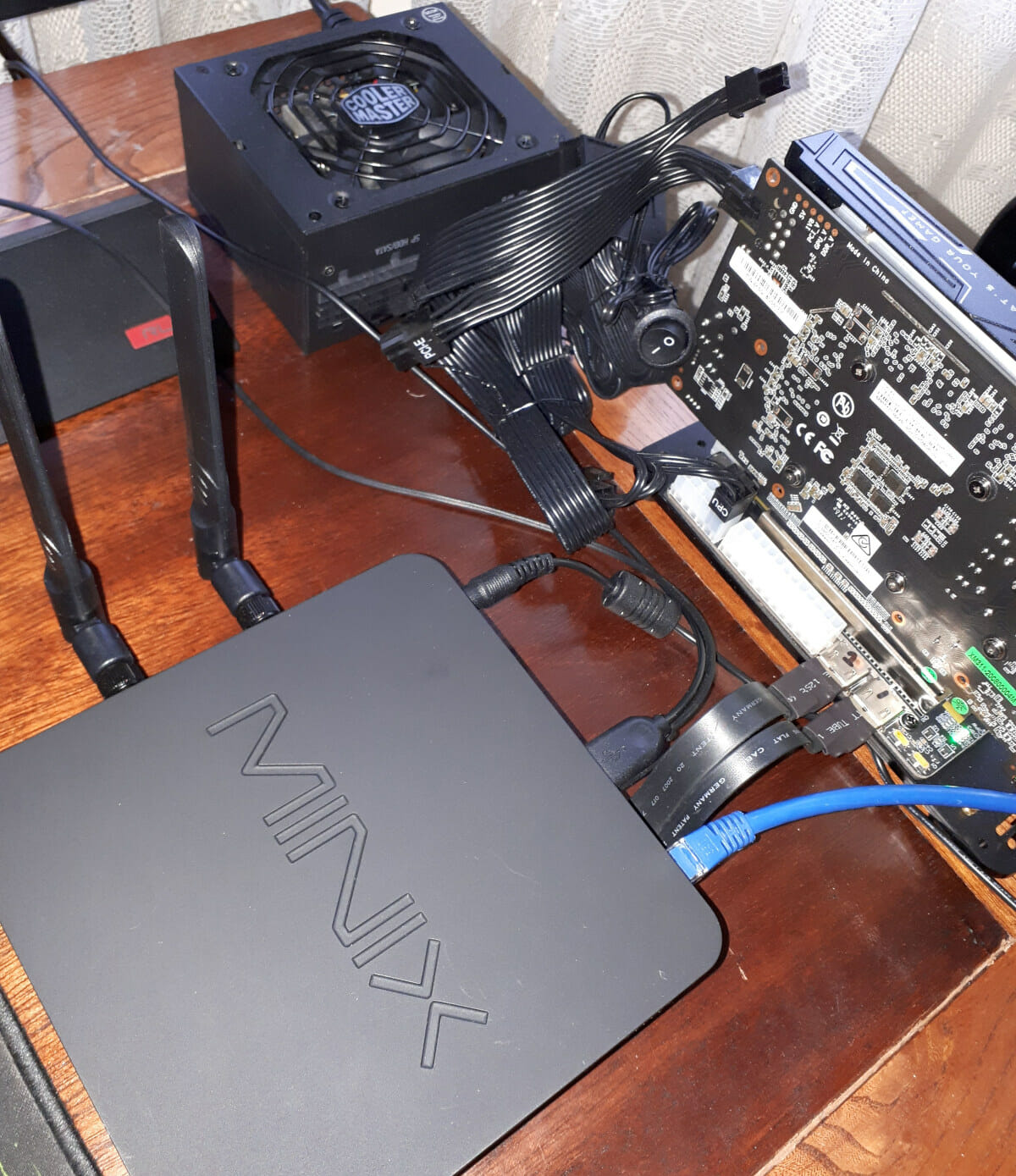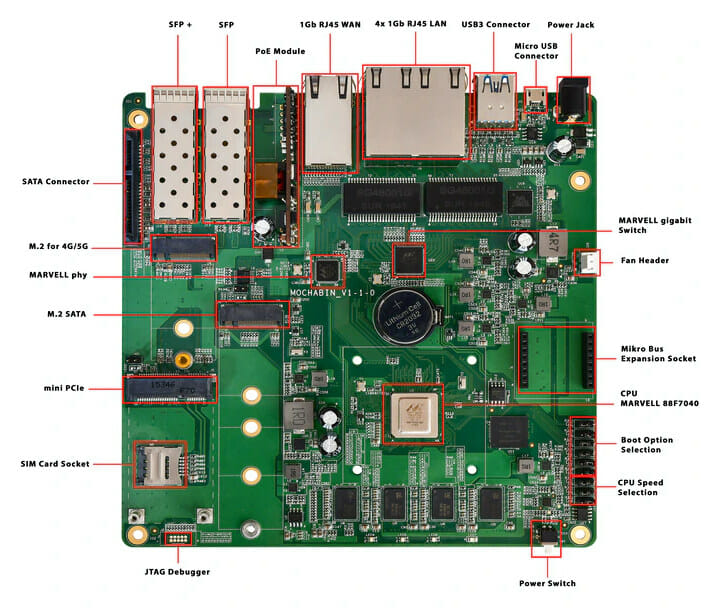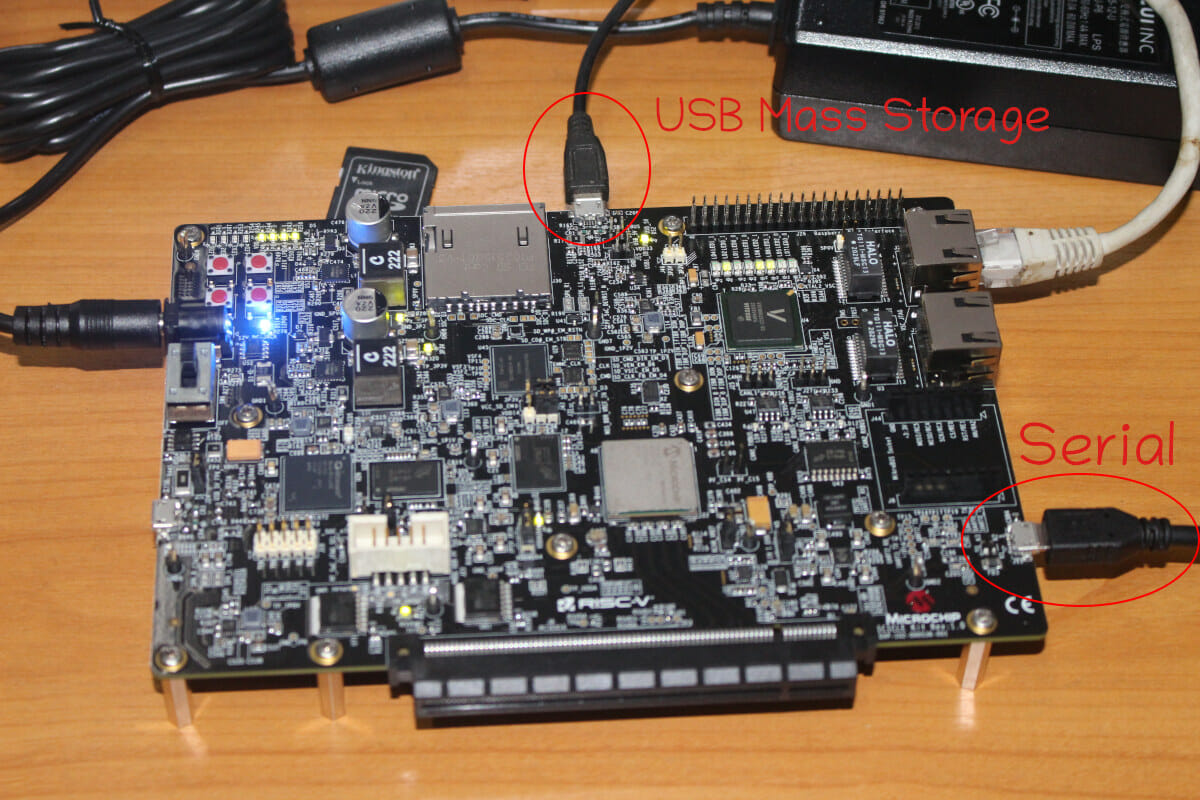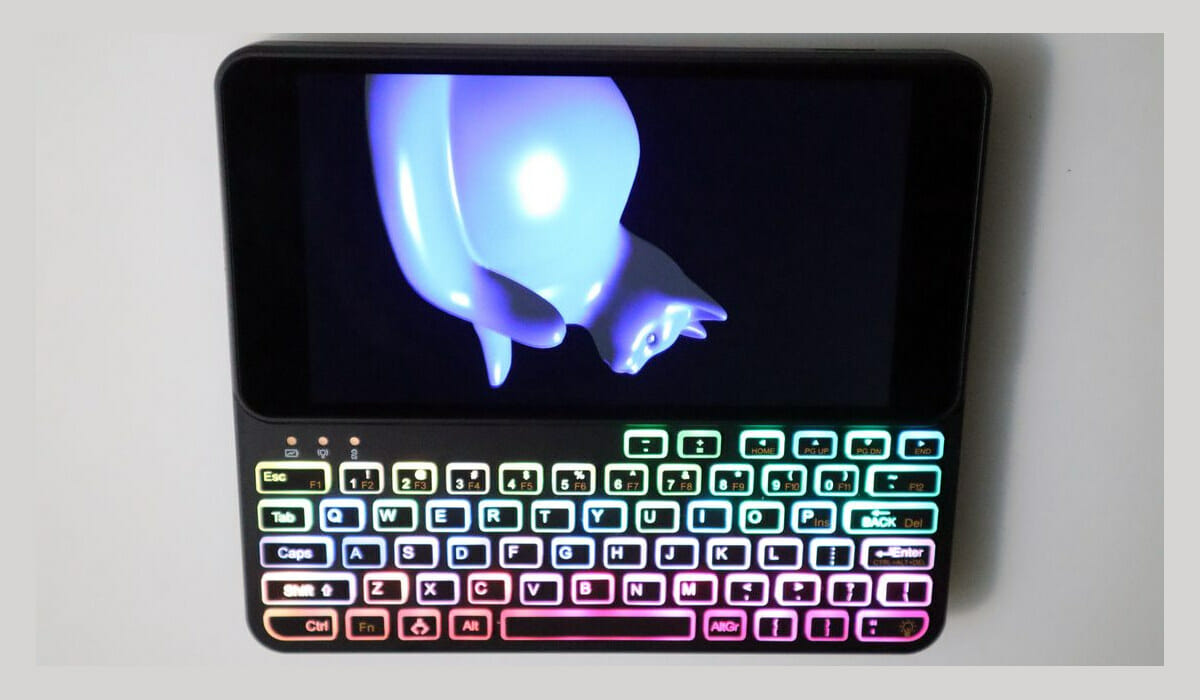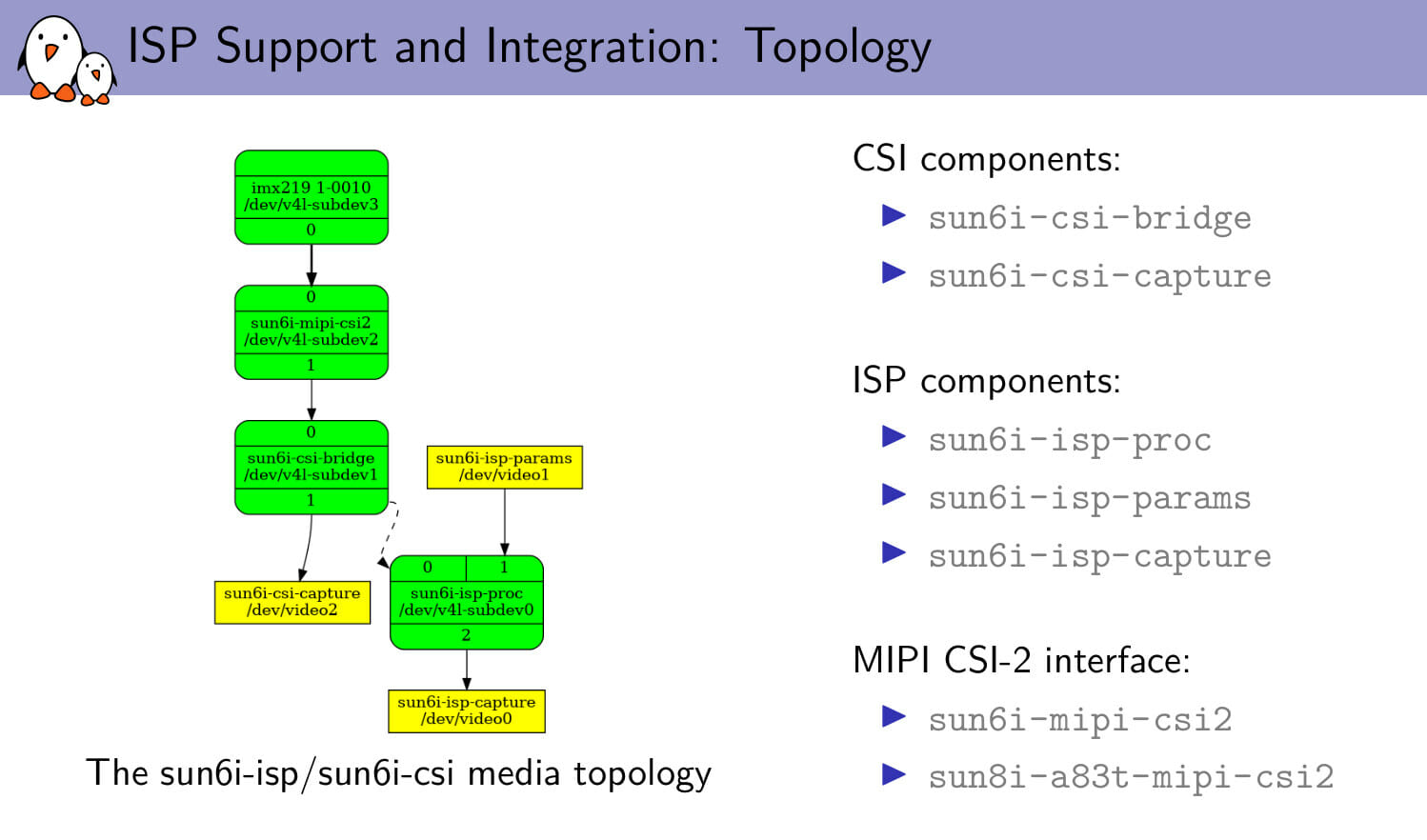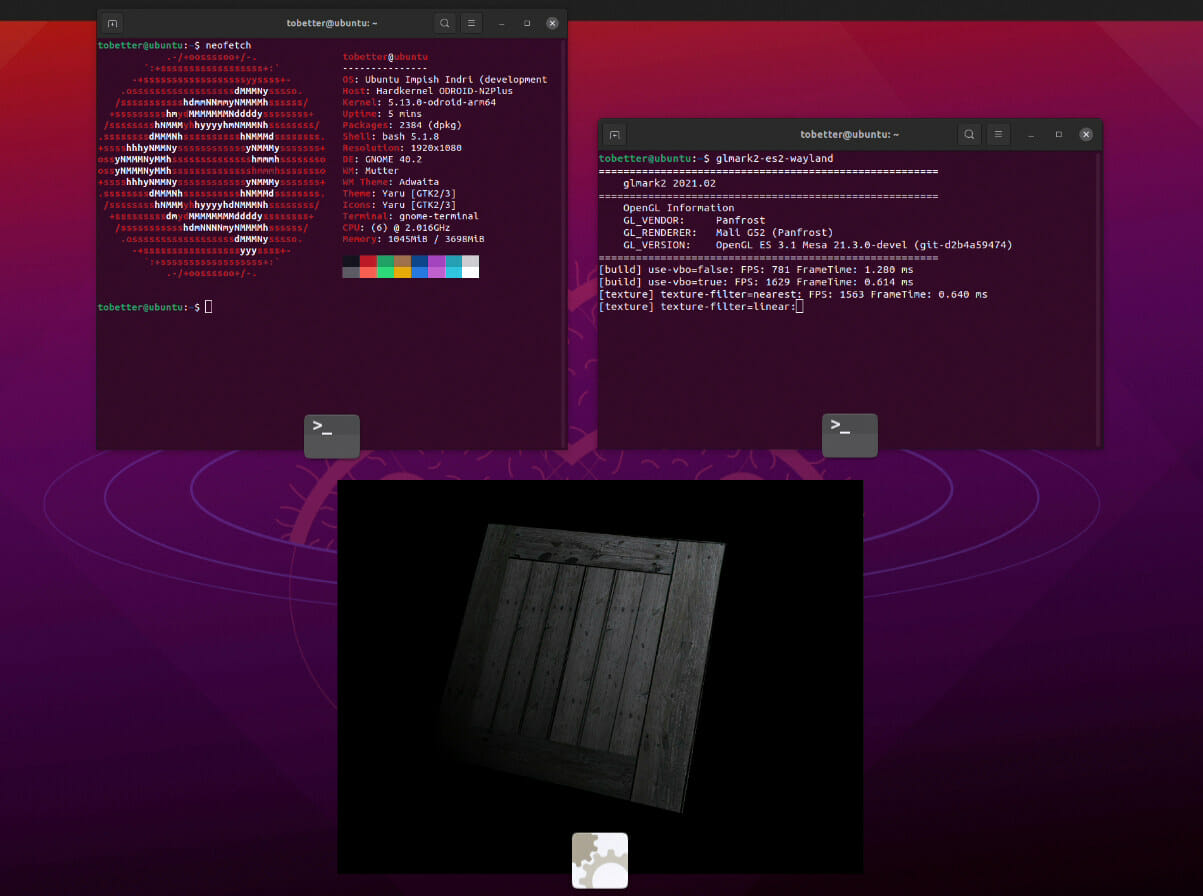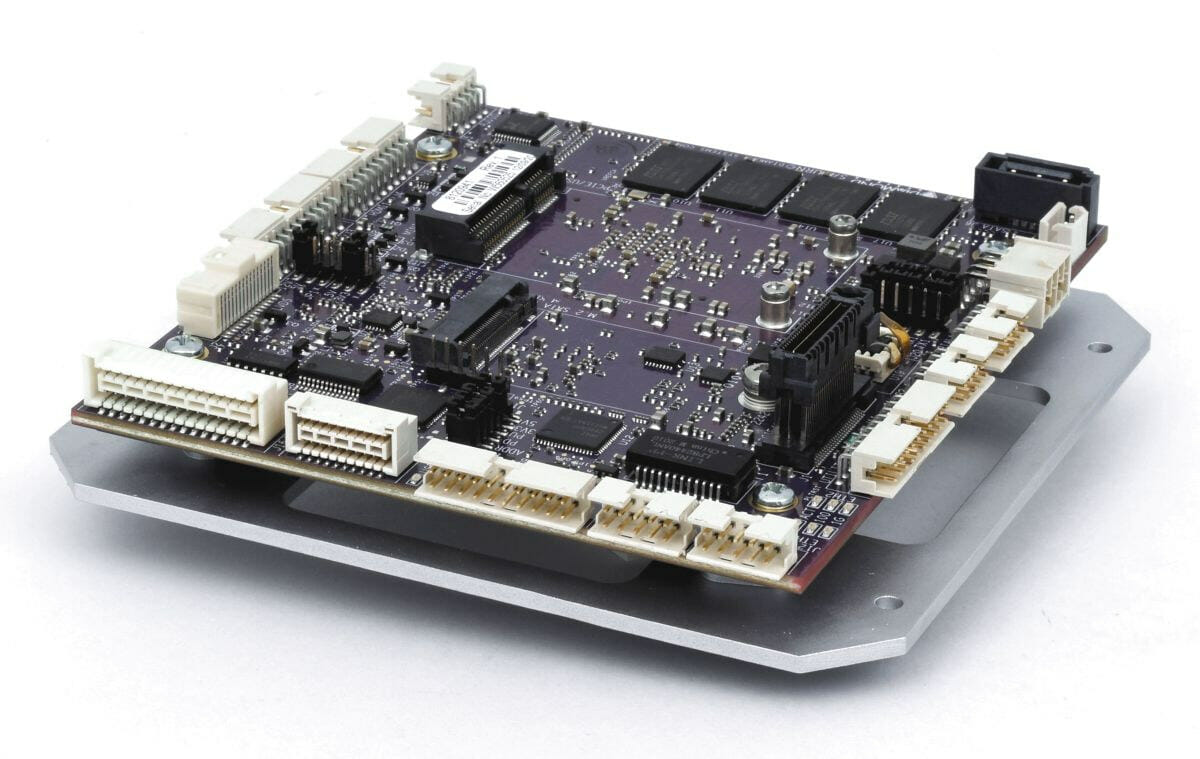MINIX has just launched a new mini PC in their NGC range called the NGC-5. Although it uses a somewhat dated Intel eighth-generation Core i5 processor, the integrated Iris Plus Graphics 655 is notable for being one of the more powerful iGPU solutions. MINIX kindly sent one for review and I’ve looked at performance running both Windows and Ubuntu together with using an eGPU. Hardware Overview The NGC-5 physically consists of a 153 x 153 x 43mm (6.02 x 6.02 x 1.57 inches) square plastic case. As an actively cooled mini PC, it uses Intel’s older 14 nm++ Core i5-8279U Coffee Lake processor which is a quad-core 8-thread 2.40 GHz processor boosting to 4.10 GHz with Intel’s Iris Plus Graphics 655. The front panel has just a LED power indicator whereas the rear panel includes dual gigabit Ethernet ports, dual USB 3.1 ports, a DisplayPort 1.2, an HDMI 2.0a port, […]
MochaBin-5G SBC offers 10GbE, WiFi 6, 5G for $159 and up (Crowdfunding)
Globalscale Technologies has a follow-up to their low-cost ESPRESSOBin SBC based on Marvell Armada 3700LP SoC. The MochaBin-5G SBC is powered by a Marvell Armada 7040 quad-core Cortex-A72 processor, and offers 10GbE networking for as little as $159, with as well as optional WiFi 6 and 5G connectivity. The single board computer is equipped with 16GB eMMC flash, up to 8GB DDR4, and plenty of high-speed interface with multiple Ethernet ports, USB 3.0 ports, M.2 socket for SATA and Cellular, and a mini PCIe for Wi-Fi and Bluetooth connectivity. MochaBin-5G specifications: SoC – Marvell Armada 7040 quad-core Corex-A72 processor @ up to 1.4GHz System Memory – 4GB or 8GB DDR4 (soldered down) Storage – 16GB eMMC flash, 4MB SPI NOR flash for bootloader, SATA connector, M.2 2280 socket for SATA III SSD Networking 1x 10GbE SFP+, 1x 1GbE SFP (via 88E1512 PHY) 4x Gigabit Ethernet RJ45 LAN ports via Topaz […]
Getting Started with the Yocto Linux BSP for Polarfire SoC FPGA Icicle Kit
Last month I received Microchip PolarFire SoC FPGA Icicle development kit that features PolarFire SoC FPGA with a Penta–core 64-bit RISC-V CPU subsystem and an FPGA with 254K LE, and booted it into the pre-installed Linux operating systems based on OpenEmbedded. Today, I’ll show how to get started with the Yocto BSP and run the EEMBC CoreMark benchmark, and I’ll check out the FPGA with Libero SoC Design Suite in a couple of weeks. Operating Systems supported by PolarFire SoC FPGA My initial idea was to focus this part of the review on Linux on RISC-V status, checking some system information, running some benchmarks (e.g. SBC-Bench), compiling the Linux kernel, and installing services like a LEMP stack (Linux, Nginx (pronounced Engine-X), MySQL, PHP) which could be used for WordPress hosting for instance. But then I looked at the operating systems supported with Microchip PolarFire SoC FPGA. There’s a Yocto Linux […]
Pocket P.C. devkits ship, U-blox GNSS module replaced by SIMCom SIM33ELA
The Pocket P.C. (aka Popcorn Computer) is a handheld Linux computer based on Allwinner A64 with 2GB RAM, 32GB storage, a 4.95-inch Full HD display, and a QWERTY keyboard that was introduced in 2019, and reminds me of PocketCHIP from a few years also with an Allwinner processor, a display, a keyboard, and a battery. The initial plan was to start shipping the device by May 2020, and there are been delays for reasons we’ll explain below, but the good news is that Source Parts has just announced the developer units had been shipped. So what happened exactly, besides the COVID-19 pandemic, government lockdowns, and supply chain disruptions? Source Parts first encountered issues with the quality of PCBs delivered by the manufacturer, which ended up with them having to switch to a new manufacturer. Getting the display to work was also a challenge, and Icenowy, a developer involved with linux-sunxi […]
Fairphone 4 repairable Android smartphone comes with a 5-year warranty
The Fairphone is a socially responsible repairable, modular Android smartphone that aims to last longer than most other phones. The latest iteration is the Fairphone 4, which follows the Fairphone 3 released in August 2019. The Fairphone 4 runs Android 11 on a Qualcomm Snapdragon 750G octa-core processor coupled with up to 8GB RAM, 256GB of storage, and a 6.3-inch Full HD+ display. The smartphone comes with a 5-year warranty by default, and software updates are guaranteed until at least 2025. Fairphone 4 specifications: SoC – Qualcomm Snapdragon 750G (SM7225) octa-core Kryo 570 processor with 2x Cortex-A77 cores @ 2.2GHz, 6x Cortex-A55 cores @ 1.8GHz, Adreno 619 GPU System Memory & Storage options 6GB RAM, 128GB internal storeage, MicroSD card socket up to 2TB 8GB RAM, 256GB internal storage, MicroSD card socket up to 2TB Display – 6.3-inch Full HD+ (2340×1080) IPS touchscreen display with Gorilla Glass 5 Cameras Primary […]
Open-source Allwinner V3 ISP driver to enable blob-free camera support in mainline Linux
Bootlin has just submitted the first patchset for the Allwinner V3 image signal processor (ISP) driver in mainline Linux which should pave the way for a completely open-source, blob-free camera support in Linux using V4L2. There are several blocks in an SoC for camera support including a camera input interface such as MIPI CSI 2 and an ISP to process the raw data into a usable image. Add to this the need to implement the code for sensors, and there’s quite a lot of work to get it all working. Allwinner SDK comes with several binary blobs, aka closed-source binary, but Bootlin is working on making those obsolete, having first worked on Allwinner A31, V3s/V3/S3, and A83T MIPI CSI-2 support for the camera interface driver in the V4L2 framework (and Rockchip PX30, RK1808, RK3128 and RK3288 processors), as well as implemented support for Omnivision OV8865 and OV5648 image sensors earlier […]
ODROID-N2+ SBC gets Ubuntu 21.10, Chromium OS with Panfrost open-source GPU driver
Panfrost open-source driver for Arm Mali Bifrost and Midgard GPUs has come a long way, and Hardkernel’s ODROID-N2+ board now supports Ubuntu 21.10 and Chromium OS with 3D graphics acceleration through the Panfrost driver. As a reminder, ODROID-N2+ is a single board computer powered by an Amlogic S922X Rev.C processor clocked at 2.4GHz with an Arm Mali-G52 GPU, with up to 4GB RAM, and which comes with HDMI 2.0, Gigabit Ethernet, four USB 3.0 ports, plus a GPIO header. ODROID-N2+ with Ubuntu 21.10 + Panfrost Ubuntu 21.10 Impish Indiri is supposed to be released on October 14, 2021 together with Gnome 40, but Hardkernel released a development version as early as August, with Linux 5.14 and Panfrost GPU acceleration as you can see from the screenshot above. The Ubuntu 21.10 image for ODROID-N2+ and the earlier ODROID-N2 SBC cannot be found in the Wiki just yet, but should be there […]
Data acquisition SBC offers PCIe/104 and mPCIe expansions
DIamond Systems’ Saturn is a rugged Intel Atom x5-E3940 powered SBC with an industrial analog and digital data acquisition subsystem, as well as PCIe/104 OneBank and mini PCIe sockets for I/O expansion. The Saturn SBC is also equipped with either 4GB non-ECC or 8GB ECC RAM, SATA, two Gigabit Ethernet networking interfaces, two HDMI video outputs, multiple USB and serial interfaces, and more… most available through positive latching connectors that comply with the PCIe/104 standard, which also allows for stacking multiple expansion boards through the PCIe/104 Onebank connectors. Saturn SBC specifications: SoC – Intel Atom x5-E3940 quad-core Apollo Lake processor @ up to 1.6GHz / 1.8 GHz (burst with 15-year lifecycle System Memory – 4GB non-ECC or 8GB ECC RAM soldered Storage – SATA port and M.2 2242 SATA socket up to 1TB Video Output – 2x HDMI interfaces, LVDS Audio – ALC622 audio codec; Line Out, Line In, and […]

